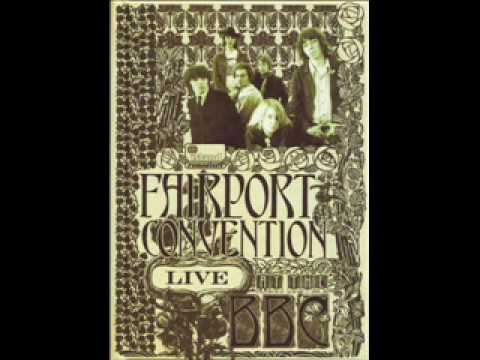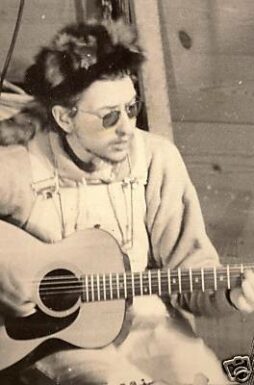

By Stephen Pate – Between March and October of 1967, Bob Dylan wrote new songs so quickly he and The Band had enough material for 3 or 4 albums. Dylan also delivered songs for other artists to cover.
The bootleg home recordings made by Garth Hudson, the keyboard player of The Band, in the Big Pink house in West Saugerties, New York became the stuff of legend when Dylan refused to release them on an album.

So fans circulated bootlegs with various titles like “Great White Wonder“, “A Tree With Roots” and “The Genuine Basement Tapes.”
Robbie Robertson issued, with Dylan’s approval, a 1975 double album called The Basement Tapes but word spread that Robertson had re-jigged the music. It wasn’t the real thing.
So finally in November 2014, Bob Dylan’s label Sony Legacy released the complete Basement Tapes, compiled from the original tapes still in the possession of Garth Hudson – The Basement Tapes Complete: The Bootleg Series Vol. 11.
While fans and music critics are waxing eloquent about those days in 1967, Bob Dylan seems almost off-handed in this recent audio interview. There you go. It was not such a big deal and the songs were just spur of the moment creations, according to Bob Dylan.
Or were they? Dylan is notorious for being elusive and sending out mixed signals. I leave it for you to decide.
[Bob Dylan interview]
Well, we had the place pretty much on our own. Whatever was on top of the pile, somebody’d grab it and tell us. “Let’s do that for a while.”
It was the kind of music that made you feel that you were apart of something very very special, and nobody else was a part of it. Back then, it was hard to get to.
You can’t record everything you wrote, so, it’s understandable that a lot of this stuff, you know, just fell by the wayside, or I don’t even know where it was kept all these years.
I’ve never seen these lyrics since the day they were written. Never seen ‘em.
How did I wind up in Woodstock? I don’t know.
How did the songs from the basement tapes come about?
Well, ya know, I decided I was going to stay up in Woodstock for a while, so my band from the tour we had done together.
Those guys all just came on up there and they liked it too.
Robbie called me up one day and said “What’s happening man? What’s happening?”
And I said “Nothin.” And he said he was in the mood for some nothin too.
It had a basement. Typical basement filled with pipes and a concrete floor, washer dryer.
We’d just sit around and come up with songs before we went down into the basement to put it on tape. Woodstock was a place where you could kinda go get your thoughts together.
It was an artist colony. Plenty of painters who lived in that area, but very few musicians. We certainly knew of nobody up there playing any music. Later there was, but when we were up there middle 60s, we were pretty much by ourselves.
The events of the day, they were just happening and they seemed to be a million miles away. We weren’t really participating in any of that stuff. It was the summer of love, but we weren’t there, so we did our thing. We wrote million dollar bash to go along with the summer of love.
I had nothing else to do, so I started writing a bunch of songs.
I’d write ‘em in long hand and I’d write ‘em on the typewriter. Whatever was handy. Pencil, pen, typewriter.
How did we go about writing those songs? I know I wasn’t going to write anything about myself. I didn’t have nothing to say about myself I figure anybody else’d be interested in anyway. You kinda look for ideas.
The TV’d be on, like As the World Turns, or Dark Shadows or something, just any old thing would create a beginning to a song. Names out of phone books and things.
When China first exploded that hydrogen bomb, that just flashed across the headlines of the newspapers. So, we just go in there and write tears of rage. Things would just happen in there.
There was riots in the street. They were rioting in Rochester, New York, and that wasn’t that far away, so we write too much of nothing. Just one thing led to another.
The human heart, that’s the first time anybody’d ever heard of a human heart being transplanted. That was incredible. It was a real breakthrough, so we came up with a song. Then, after we got the lyrics down, we took the song to the basement.
I don’t remember when I became aware these songs being bootlegged. I had no intention of putting them out. I wouldn’t know where to get this record. I guess they were selling them in record stores.
It’s always interesting when someone takes a song that’s written and re-records it. These songs weren’t tailor made for anybody. I just wrote what I felt like writing.
In his first non-print interview since 2004 Bob Dylan finally breaks his silence about The Basement Tapes.
The basement recordings were made during 1967, after Dylan had withdrawn to his Woodstock home in the aftermath of a motorcycle accident on July 29, 1966. Dylan has referred to commercial pressures behind the basement recordings in a 1969 interview with Rolling Stone: “They weren’t demos for myself, they were demos of the songs. I was being PUSHED again into coming up with some songs. You know how those things go. “In October 1967, a fourteen-song demo tape was copyrighted and the compositions were registered with Dwarf Music, a publishing company jointly owned by Dylan and his manager Albert Grossman. Acetates and tapes of the songs then circulated among interested recording artists.
Peter, Paul and Mary had the first hit with a basement composition when their cover of “Too Much of Nothing” reached number 35 on the Billboard chart in late 1967. Ian & Sylvia, also managed by Grossman, recorded “Tears of Rage“, “Quinn the Eskimo” and “This Wheel’s on Fire“. In January 1968, Manfred Mann reached number one on the UK pop chart with their recording of “The Mighty Quinn“. In April, “This Wheel’s on Fire“, recorded by Julie Driscoll, Brian Auger and the Trinity, hit number five on the UK chart. That same month, a version of “You Ain’t Goin’ Nowhere” by the Byrds was issued as a single. Along with “Nothing Was Delivered“, it appeared on their country-rock album Sweetheart of the Rodeo, released in August.
The Hawks, officially renamed the Band, recorded “This Wheel’s on Fire“, “I Shall Be Released” and “Tears of Rage” for their debut album, Music from Big Pink, released in July 1968. Fairport Convention covered “Million Dollar Bash” on their 1969 album Unhalfbricking.
In July 1969, the first rock bootleg appeared in California, entitled Great White Wonder. The double album consisted of seven songs from the Woodstock basement sessions, plus some early recordings Dylan had made in Minneapolis in December 1961 and one track recorded from The Johnny Cash Show.
One of those responsible for the bootleg, identified only as Patrick, talked to Rolling Stone: “Dylan is a heavy talent and he’s got all those songs nobody’s ever heard. We thought we’d take it upon ourselves to make this music available.” The process of bootlegging Dylan’s work would eventually see the illegal release of hundreds of live and studio recordings, and lead the Recording Industry Association of America to describe Dylan as the most bootlegged artist in the history of the music industry.
Follow me on Twitter at @sdpate or on Facebook at NJN Network, OyeTimes and IMA News Buzz. You can also subscribe and automatically receive notifications of new stories by email. We do not share your email with advertisers. The subscription form is on this page in the left and right columns.
5 / 5 stars
By Stephen Pate, NJN Network

Be the first to comment